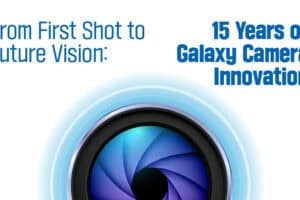We need a ready tool that acknowledges the inextricability of our vital health data and helps us navigate such complications on demand.

Tech companies are focusing a lot of research and development on wearable devices as technology takes a giant leap into the future.
While GPs may not become obsolete just yet, smartwatch tech is proving to be extremely important in recording critical information that may assist a doctor in making a diagnosis without actually seeing the patient.
Body analysis
Our body is more than just a sum of its parts – it’s a complicated, dynamic ecosystem where every organ, nerve and vessel is in conversation with each other.
Psychological well-being has proven to be tied to our cardiovascular health.
Likewise, the quality of our sleep can affect our cognitive abilities, while fitness levels can have a direct impact on mental health.
Therefore, more than ever, we need a ready tool that acknowledges the inextricability of our vital health data and helps us navigate such complications on demand.
ALSO READ: Huawei reveals new wearables in Barcelona
Smartwatches
While the closest thing available is the modern-day smartwatch, many smartwatches in the market lack the added dimension to deal with such complexities.
There are currently a plethora of smart watches on the market and making an informed choice can be tricky.
Apple, Garmin, Huawei, Samsung and Vivo, among others, have features that have attracted users towards the brand.
Features
Features, price, battery life visual aesthetics and whether it pairs with any smartphone are what people should consider when getting a smartwatch.
While Apple and Samsung’s new ultras are feature-packed and look very similar, the recently launched Huawei Watch GT5 series has a TruSense System designed to provide accurate, fast, and most importantly, comprehensive insights, helping users make more informed decisions about their health.
Instant electrocardiogram (ECG or EKG) analysis, emotional well-being, Oxygen saturation (SpO2) and heart rate calculation are extremely important when users want a snapshot of their health.
Smartwatches should also be aesthetically pleasing and can be worn while wearing jeans and takkies or a suit.
ALSO READ: New California law extends consumer privacy protection to brain data
Blood pressure
While the Apple Watch has fall detection, Huawei’s new D2 is a must for people suffering from blood pressure which is often dubbed the ‘silent killer’ and is the leading cause of heart disease in men.
The danger of high blood pressure lies in its ability to damage the cardiovascular system without presenting obvious symptoms.
Regular monitoring is crucial, but traditional methods can be seriously inconvenient.
That’s where the Huawei Watch D2 comes in.
The device can measure your blood pressure and is the world’s first smartwatch rated for Ambulatory Blood Pressure Monitoring (ABPM).
To measure blood pressure, the watch inflates an airbag between the skin and the wristband; the pump is located in the case.
Health risks
From sleep apnoea risk detection to menstrual health tracking, smartwatches need the tech to cover several health risks.
These insights must be automatically recorded over time where they are analysed to provide personalised recommendations.
Imagine having an assistant and expert both at your wrist, reminding you to make small yet incremental lifestyle changes that can improve your health for the long term.
After all, health issues don’t exist in a vacuum. To truly achieve holistic health, wearable technology must equip users with the right tools to understand themselves and make up for blind spots where possible.
Battery life and prices
However, the most important aspect of any tech is battery life, and this is where some devices fall short.
Apple and Samsung have an average battery life of between a day and five days. Vivo and Huawei, depending on the features switched on, can pull to about 14 days before the device needs a charge.
People who want smartwatches should also consider the price range of the devices, which can range from as little as R1,200 to R22,000 for Apple Watch Ultra.
ALSO READ: Move over Apple, Huawei debuts tri-fold smartphone Mate XT [VIDEO]






